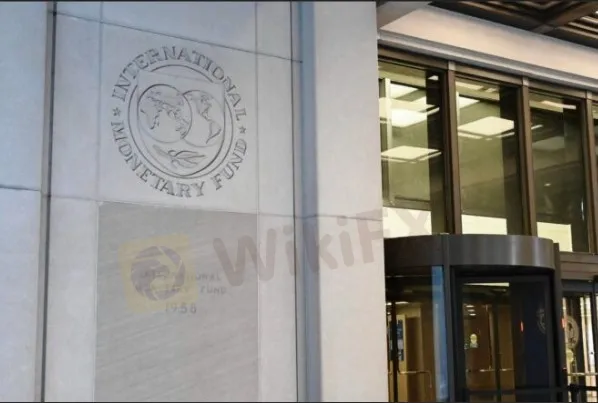简体中文
繁體中文
English
Pусский
日本語
ภาษาไทย
Tiếng Việt
Bahasa Indonesia
Español
हिन्दी
Filippiiniläinen
Français
Deutsch
Português
Türkçe
한국어
العربية
IMF says yen's rapid slide may hamper Japan's post-pandemic recovery
Abstract:WASHINGTON (Kyodo) -- The chief of the International Monetary Fund's Japan mission believes the yen's rapid recent slide could hamper the pandemic-stricken Japanese economy from returning to a steady growth pathway by raising import costs and hurting consumer spending.
The yen's drop to a 20-year low against the dollar last week is a reflection of the Bank of Japan's decision to persist with its loose monetary easing settings when central banks in other major economies are tightening, Ranil Salgado said in a recent written interview with Kyodo News.

Still, the IMF Japan mission chief said the Japanese central bank should stay the course until it attains its 2 percent inflation target as “inflation will fall back once higher prices (of imported commodities) diminish.”
The Japanese currency has lost nearly 15 yen against the dollar since early March, briefly sinking to the mid-129 yen zone last Wednesday. A weaker yen typically serves as a boon to Japanese exporters, as profits earned overseas increase when repatriated and Japan-made products become more competitively priced abroad.
But the yen's recent depreciation is threatening resource-scarce Japan, raising prices of imported energy and other commodities that have already seen sharp price increases driven by the war in Ukraine.
“Further rapid depreciation of the yen due to monetary policy divergence could dampen domestic demand and worsen the terms of trade,” Salgado said.
The BOJ is widely expected to leave its monetary policy unchanged when it holds its next policy meeting on Wednesday and Thursday this week.
The consumer price index, excluding volatile fresh food items, rose 0.8 percent in March from a year earlier, the fastest pace of increase in over two years but far from the BOJ's 2 percent target.
The IMF last Tuesday cut its forecast for Japan's economic growth this year to 2.4 percent from the previous 3.3 percent, citing rising oil prices that are expected to weigh on private consumption and investment.
Salgado, also assistant director of the IMF's Asia and Pacific Department, said growth in Japan may be held back further if Russia's war in Ukraine escalates, China's growth slows or new and more dangerous coronavirus strains emerge which require renewed restrictions on economic activity.
Finance chiefs of the Group of 20 major economies met last Wednesday on the sidelines of IMF spring meetings in Washington and World Bank gatherings through Sunday. The meeting of all 20 members, including the United States and Russia, exposed divisions over Moscow's aggression against Ukraine.
“Policymakers should not lose sight of longer-term goals, such as stable and inclusive growth,” Salgado said.
He called Japan a “global leader in support of multilateralism and international cooperation,” for promoting more open, stable and transparent trade policies and said Tokyo can “build a more cooperative global economic system and help the most vulnerable around the globe.”
Disclaimer:
The views in this article only represent the author's personal views, and do not constitute investment advice on this platform. This platform does not guarantee the accuracy, completeness and timeliness of the information in the article, and will not be liable for any loss caused by the use of or reliance on the information in the article.
Read more

The president of @Liberland, @Vít Jedlička come on stage, dialogue on trading security.
The 2025 WikiEXPO Hong Kong Station is about to grandly open. the president of @Liberland, @Vít Jedlička come on stage, dialogue on trading security.

Countdown: 1 day.WikiEXPO2025's first stop, Hong Kong, is about to open.
⏰ Countdown: 1 day. WikiEXPO2025's first stop, Hong Kong, is just tomorrow. Focus on transaction security and explore new investment opportunities. ???? Get ready to start now. See you tomorrow.
JustMarkets Review 2025: Live & Demo Accounts, Withdrawal to Explore
Established in 2012, JustMarkets (Formerly JustForex) is an online forex broker based in Cyprus and serves clients in over 160 countries. Featuring a low entry barrier, a 50% deposit bonus, and robust trading platforms -MT4 and MT5, JustMarkets has gained great popularity among retail investors in recent years. JustMarkets allows traders to trade over 260 CFD-based instruments, which is not an extensive range, yet on leverage up to 3000:1 to increase trading flexibility. To enhance the trading experience, both MT4 and MT5 are provided, along with JustMarkets Trading App, MetaTrader Mobile App, and MetaTrader WebTerminal. JustMarkets offers a 50% deposit bonus to boost traders' confidence. Opening an account is a fully online process, typically completed within one day.

WikiEXPO Becomes Partner of the Liberland Government
Wiki Finance EXPO is honored to announce a partnership with the Free Republic of Liberland. This collaboration will further advance global dialogue on financial innovation and decentralized technology, bringing cutting-edge insights and industry opportunities to participants.
WikiFX Broker
Latest News
Enlighten Securities Penalized $5 Million as SFC Uncovers Risk Control Failures
Why Are Financial Firms Adopting Stablecoins to Enhance Services and Stability?
Experienced Forex Traders Usually Do This Before Making a Lot of Money
Octa vs XM:Face-Off: A Detailed Comparison
When High Returns Go Wrong: How a Finance Manager Lost RM364,000
Bridging Trust, Exploring Best—WikiEXPO Hong Kong 2025 Wraps Up Spectacularly
Interactive Brokers Expands Crypto Trading with Solana, XRP, Cardano, and Dogecoin
Fidelity Investments Explores Stablecoin Innovation in Digital Assets Sector
Why More People Are Trading Online Today?
SEC Ends Crypto.com Probe, No Action Taken by Regulator
Currency Calculator







